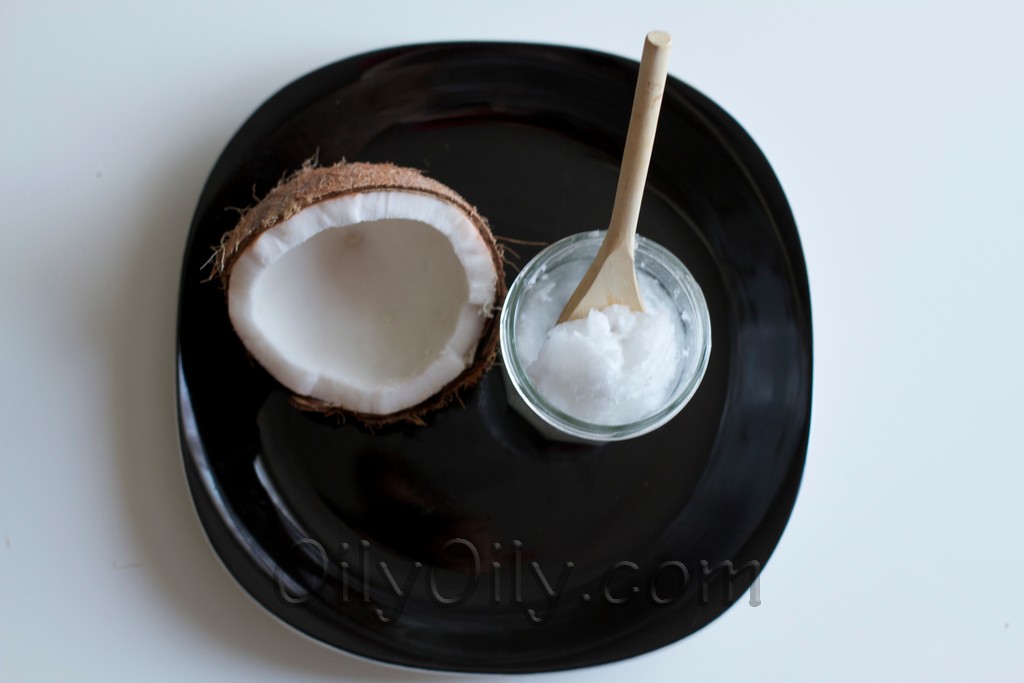
If we compare coconut oil vs canola oil we can see that these two oils are completely different. They have different fat profiles, different nutrients and vitamins. Their flavors, textures are completely different as well. The only thing that unites them is that they are fat.
Contents
Basics
Coconut oil is extracted from coconuts. It is solid in texture and has a mild coconut flavor which adds your dishes a specific taste and odor. Canola oil is derived from the canola plant, belonging to the Brassica botanic family together with broccoli. Canola oil is light and neutral in flavor. Both oils contain no fiber or protein. They are almost completely fat.
SEE ALSO: Coconut Oil vs Olive Oil - Can You Interchange them?
Fat profile of coconut oil vs canola oil
Coconut oil and canola oil have 14 grams of total fat on a tablespoon, but their fatty acids composition is completely different. Coconut oil is high in saturated fat. Some individuals believe that saturated fat makes coconut oil unhealthy, but researches show that the type of saturated fat coconut oil contains is health beneficial as well. Coconut oil is high in medium-chain triglycerides. They are digested quickly, so coconut oil is a good source of energy and even contributes to weight loss (read more about coconut oil and weight loss).
According to Wikipedia canola oil possesses 61% of monounsaturated oleic acid, 21% of polyunsaturated omega-6 fatty acids and 11 % of omega-3 fatty acids. Omega-6 and omega-3 fats are essential for people as we can receive them only from nutrition. The balance of these fats in canola oil is also beneficial, the one people need for everyday consumption.
Vitamins and nutrients
While coconut oil contains only a trace of vitamin E, one tablespoon of canola oil has 16 % of the recommended daily intake of this vitamin. Vitamin E is an anti-oxidant; it prevents the fat cells from damage. It protects lipoproteins necessary for fat and cholesterol transportation in the blood. Canola oil also has vitamin K, which is important for blood clotting. Coconut oil also has vitamin K, 0.5 mcg in 100 g according nutritiondata.com.
QUESTION ANSWERED: What are the Best Canola Oil Substitutes?
Benefits of coconut oil vs.canola oil
Canola oil is considered beneficial for heart health as it helps lower cholesterol and reduce blood sugar levels. It may have the anti-inflammatory effect and provides the body with the essential ALA, needed for the brain and nervous system However, more researches are needed to prove the benefits of canola oil as this oil is rather new for people. Coconut oil has been used for centuries. It possesses antibacterial, cardioprotecive and fat-burning effect. But there is no one opinion whether coconut oil is good or bad for cholesterol levels.
Cooking with coconut oil vs. canola oil
The smoke point is the main factor determining the use of any oil for cooking. Coconut oil has a medium smoke point. It is applied for sauces, smoothies, medium-heat baking and sautéing. The smoke point of canola oil is medium-high, so canola oil is widely used for deep-frying and baking.
 Oilypedia.com – Benefits And Uses Of Supplemental and Essential Oils
Oilypedia.com – Benefits And Uses Of Supplemental and Essential Oils 


